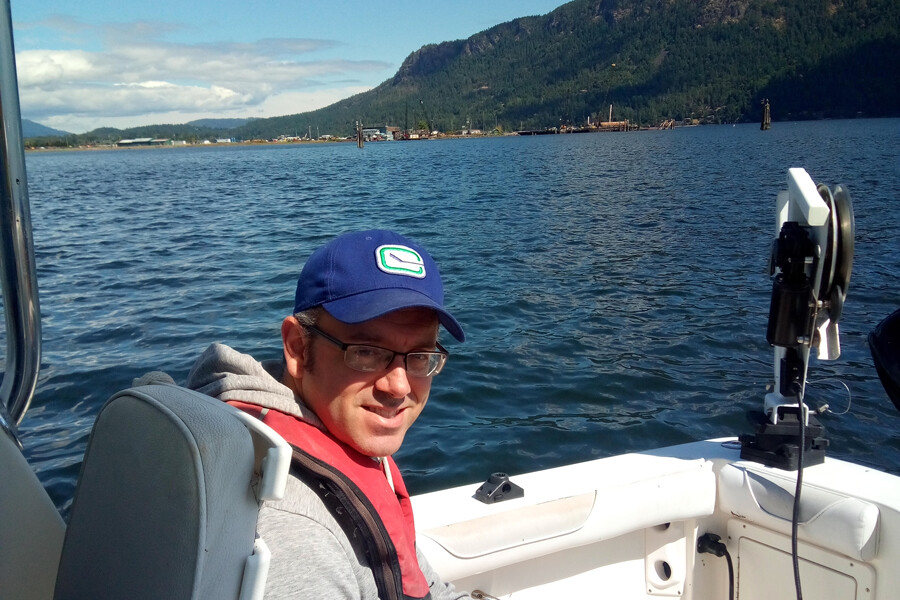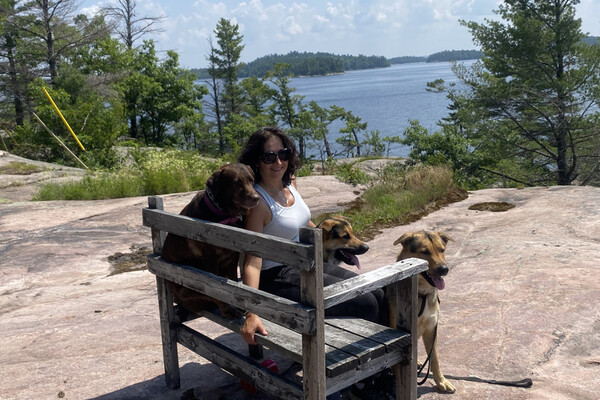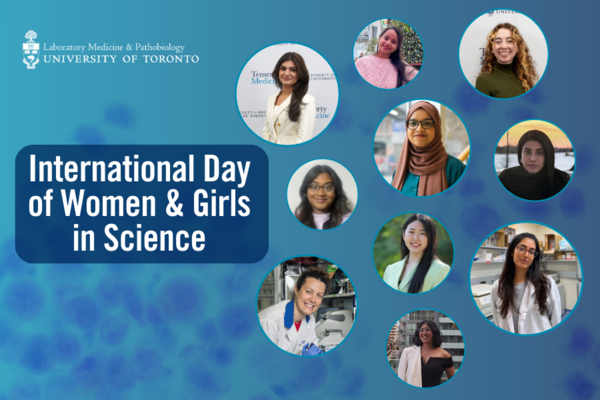Humans of LMP: Scott Yuzwa

Each month we speak to a member of the Laboratory Medicine and Pathobiology community and find out more about them as part of an initiative from our Wellness, Inclusion, Diversity and Equity Committee (WIDE).
Visit the Humans of LMP page to read more stories and nominate yourself or others to be featured.
This month we feature Assistant Professor, Dr. Scott Yuzwa.
How long have you been at LMP and what does your role involve?
I started in LMP in 2019. I’m an Assistant Professor in the department. My role involves running a basic science lab focused on molecular neurobiology and I also teach in the graduate and undergraduate programs.
What led you to pursue your current career path?
My path to this career was far from linear. When I was a kid, I wanted to be an artist and later in high school I was really into anything technology-related. That led me to pursue computer science-related studies in university. Part of the way through my undergrad, I realized the latter wasn’t for me. I took a course on genetics and fell in love with biochemistry. I have been following that passion ever since.
What working achievement or initiative are you most proud of?
As a PhD student I was part of a team that developed and revealed the utility of a class of molecules, called OGA inhibitors, for Alzheimer's Disease and related tauopathies. Several pharmaceutical companies now have OGA inhibitors in clinical trials.
What was the best career advice you ever received?
To not be afraid to go where the science leads you. Sometimes solving a problem requires new approaches and you have to step outside your usual comfort zone of techniques to get there. Being unafraid to try new techniques and adapt is something I always try to live by in my career.
What has been an important learning experience in your life?
Starting a new lab. Moving from being a trainee to running my own lab has been an incredible learning experience. You have to wear so many different hats: mentor, teacher, researcher, manager, writer, etc. There’s so much to learn but it’s been great so far.
Who is an influential person in your life and why?
All of my scientific mentors have been influential. However, I’d say that my PhD supervisor was very influential because I knew nothing about research or how to do science when I started as an undergrad student and then moved to the PhD program. I learned a lot of what got me here today from observing him and the other amazing people I’ve worked with along the way.
What would it surprise people to know about you?
I’m a first-generation university student. No one in my family or that I knew growing up had a career in academia or science. I really knew nothing about what those looked like. I’ve just been figuring it out as I’ve gone along.
What activities do you enjoy doing outside of work?
I love going for long bike rides and trying to fit in a couple of rounds of golf a year whenever possible. I’m also a big hockey fan. Go Canucks Go!
What is your favourite album, film and novel?
Album: Iron Maiden – The Number of the Beast
Film: “Step Brothers”
Novel: anything by Michael Connelly. Crime fiction is my guilty pleasure.
Who would be your dream dinner guests?
Starting out doing science in British Columbia, I was fascinated by the career of Canadian Nobel Prize winner Michael Smith who worked at UBC on site-directed mutagenesis. His biography “No Ordinary Mike” is a great read. Prof. Smith would be one of my choices. The other would be Barack Obama. I’m always amazed by his public speaking ability and poise, and I’d love to hear more about those.
Where/what is your favourite place?
In Ontario, Georgian Bay. Swimming in the warm waters there is one of the best parts of summer. Beyond Ontario, kayaking on Burrard Inlet in Port Moody, BC. A park there called, Rocky Point, has many amazing memories for my family and me.
If you were stuck on a deserted island but had all your basic needs taken care of (i.e. food and water), what two items would you bring with you and why?
The first thing I’d choose is wood working tools. At heart I’m a “builder” and making things, no matter how small or complicated is one of my favourite things. The other would be books on a wide array of topics. I’m a firm believe that anything can be learned if you have access and time. On a deserted island, I’m sure there would be a lot of the latter.
Applications for the Translational Research Program are open!




